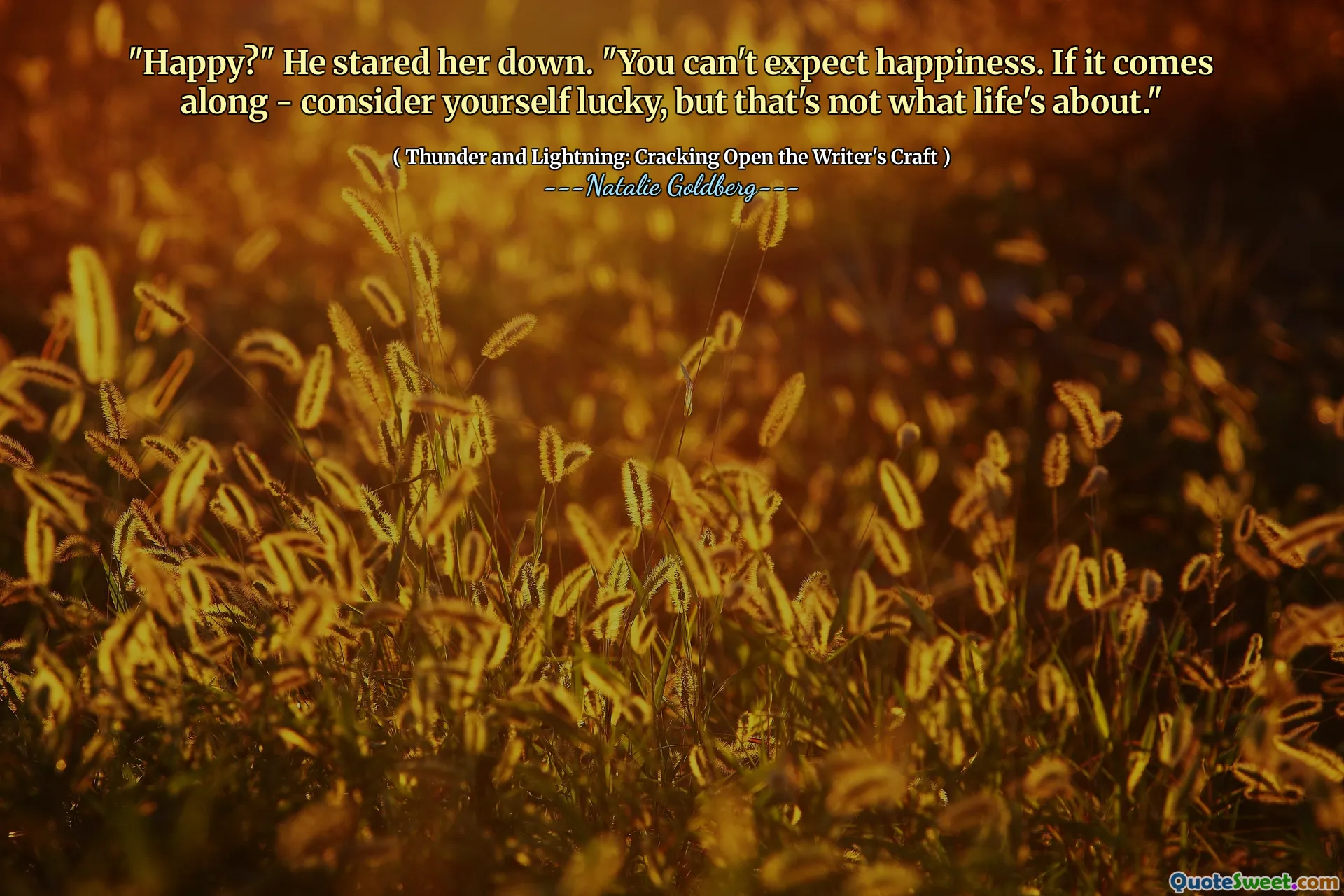
"Happy?" He stared her down. "You can't expect happiness. If it comes along - consider yourself lucky, but that's not what life's about."
This quote delves into the often misunderstood nature of happiness and life's true purpose. It suggests that happiness should not be the primary expectation or the measure of a fulfilling life. Instead, happiness is portrayed as a fortunate byproduct rather than a guaranteed entitlement. The tone of the dialogue is somewhat pragmatic and perhaps even a bit stoic, implying that life is inherently complex and unpredictable. Expecting constant happiness can lead to disappointment; therefore, appreciating moments of joy when they occur is a more resilient attitude. It's a reminder that life encompasses a spectrum of experiences—sorrow, struggle, growth, and resilience—each contributing to personal development. This perspective encourages embracing life’s full range, accepting both its hardships and its fleeting moments of joy, which makes happiness more meaningful. From a philosophical standpoint, it pushes us to consider a broader view of fulfillment—not solely rooted in emotional highs but in resilience, understanding, and the acceptance of life's impermanence. These messages resonate with many spiritual and philosophical traditions that emphasize awareness, acceptance, and endurance as keys to inner peace. Ultimately, the quote calls us to re-evaluate our expectations and find contentment not in perpetual happiness but in appreciating life's present moments, regardless of their nature.






